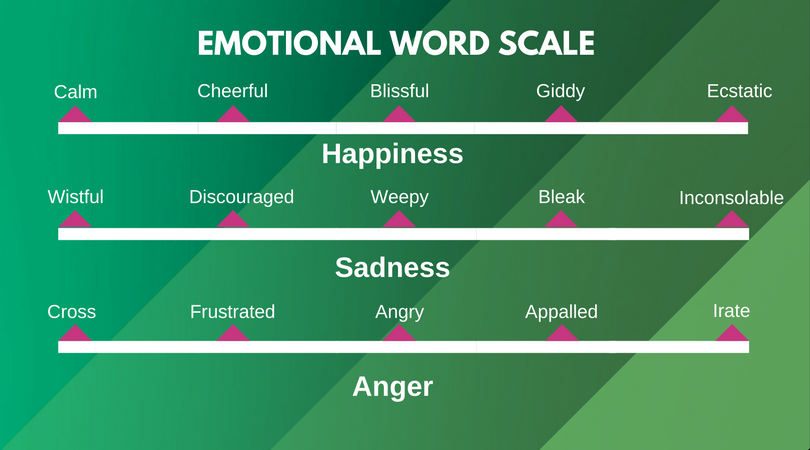Recently I was workshopping a poem in my creative writing course. The poem was written to describe a photograph of my father and me when I was a baby. While describing myself I used the words “deer in headlights” to describe the look on my face in the picture. When I wrote it, I thought this wording and imagery was very clear, but I didn’t anticipate the context those words held. Classmates thought these words implied some kind of impending tragedy, and it distracted them from other details, causing them to wonder about the fate of the people described in the poem.
This got me thinking about the kinds of meanings that words can have. While the comparison of a baby getting their picture taken to a “deer in headlights” made sense to me, there was a very different connotation to that phrase for my peers. I decided to do some research about how vocabulary affects emotion, and I learned some interesting details about language and the way we use it to express emotion.
1. Vocabulary’s Connotative Meanings
Connotative meanings change how words are used. Like I experienced with my poem, certain words or phrases have specific implied meanings. The phrase “deer in headlights” has a negative connotation that creates a negative emotional response. Using the phrase out of connotation confused my audience and completely changed the meaning my poem conveyed.
2. Vocabulary that Describes Emotions
The way that we describe emotions is also really fascinating to consider. Emotional descriptors can be used to show the range of our emotions. When we’re feeling calm or content we don’t use words like ecstatic the same way that we wouldn’t say we are annoyed when we are actually outraged. Learning more about emotional descriptors has reminded me about how important a writer’s word choice is in conveying meaning to the reader.
3. Vocabulary with Emotional Connection
The emotional connection that a reader has to a word can completely change their reaction to a piece of writing, as well. For instance, some people love dogs, and a piece of writing about dogs would create a positive emotional response for those individuals. However, people who have a negative emotional connection with dogs would have a negative emotional response from the same piece of writing. Thinking about emotional connection helps me to consider my audience when writing, allowing me to cater my words to my readers.
Until I did this research I hadn’t put much thought into the importance of emotion in written and spoken language. Learning to navigate the nuances of describing emotion can really elevate a piece of writing and make all the difference in communicating your ideas to your reader!
 Brittany Lawson
Brittany Lawson
Associate Student Representative, Midwestern Region, 2017-2018
Mu Lambda Chapter
Central Methodist University, Fayette, MO







Add Comment